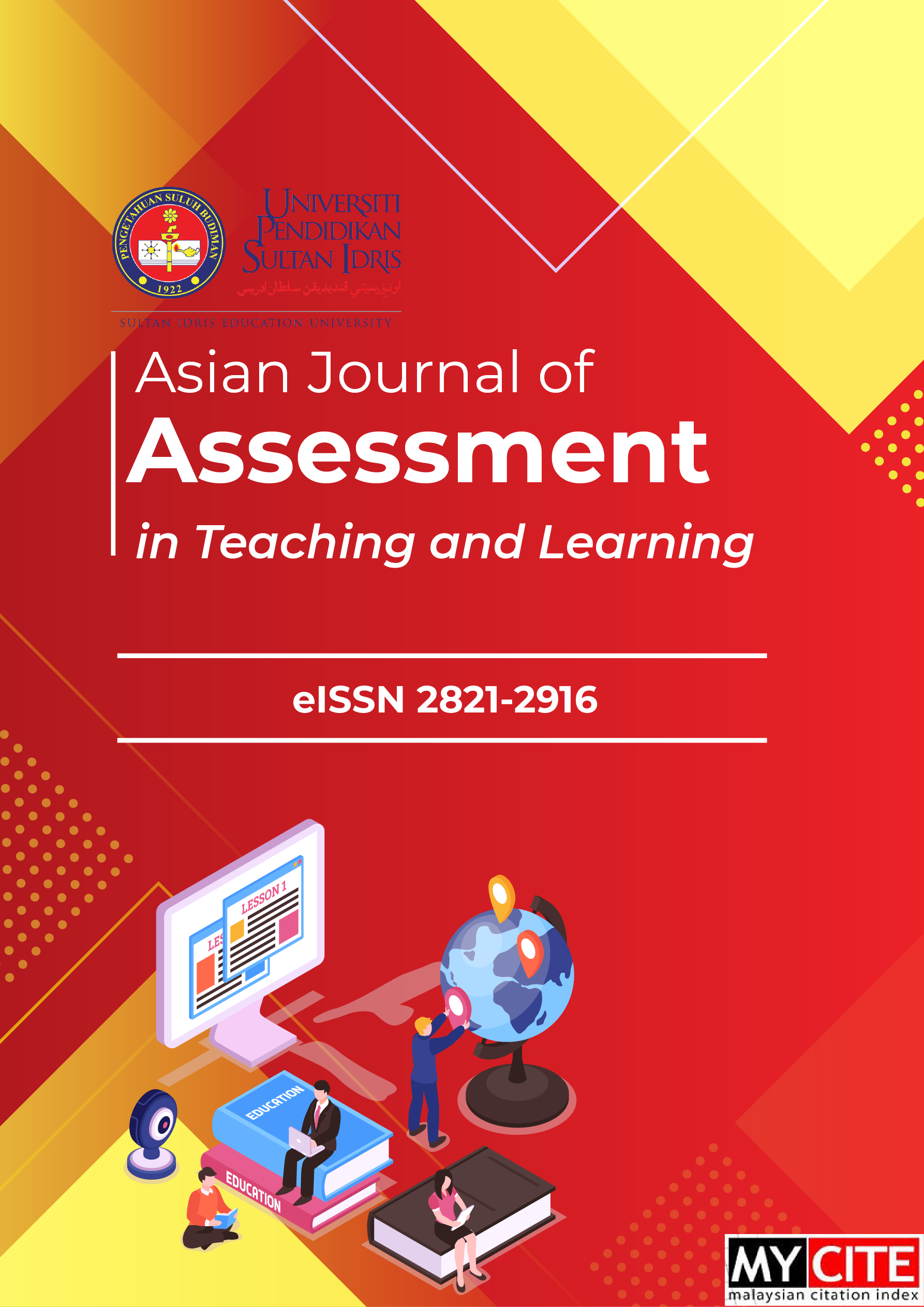The Influence of IDOLA Media Based on Articulate Storyline 3 on Elementary School Science Learning Outcomes
DOI:
https://doi.org/10.37134/ajatel.vol13.1.10.2023Keywords:
IDOLA Media, Articulate Storyline 3, Science Learning OutcomeAbstract
This study aims to identify the effect of using IDOLA media on student learning outcomes in science subjects for grade IV. This study uses a research and development (R&D) approach with a focus on validation and development of educational products. The development model used is Borg and Gall, including eight steps: 1) Identifying Potential and Problems, 2) Collecting Data, 3) Designing Products, 4) Validating Designs, 5) Revising Designs, 6) Conducting Initial Trials, 7) Revising Products, and 8) Conducting Trials. Data collection methods include tests, observations, interviews, questionnaires, and documentation. Quantitative data analysis techniques include validation sheet analysis, feasibility questionnaire analysis, teacher and student response questionnaires, and t-test gain analysis. This study involved grade IV students from three elementary schools in the Pringgodani Cluster, Sarang District, Rembang Regency. The results showed that IDOLA media was effective in improving learning outcomes. The pre-test average for the experimental and control classes were 37.25 and 39, respectively. The post-test average increased to 84.75 for the experimental class and 77 for the control class. The t-test results showed a t-value of 3.555 with a significance level of 0.000, which is smaller than α = 0.05. This study concluded that the development of IDOLA media, with the help of Articulate Storyline 3, is effective for teaching science subjects in grade four. It is recommended that teachers incorporate IDOLA media in their teaching practices to improve student learning outcomes.
Downloads
References
Alenezi, M. (2023). Digital learning and digital institution in higher education. Education Sciences, 13(1), 88. https://doi.org/10.3390/educsci13010088
Brooks, S., Dobbins, K., Scott, J. J., Rawlinson, M., & Norman, R. I. (2014). Learning about learning outcomes: The student perspective. Teaching in Higher Education, 19(6), 721-733. https://doi.org/10.1080/13562517.2014.901964
Buckingham, D. (2007). Media education goes digital: an introduction. Learning, Media and technology, 32(2), 111-119. https://doi.org/10.1080/17439880701343006
Daryanes, F., Darmadi, D., Fikri, K., Sayuti, I., Rusandi, M. A., & Situmorang, D. D. B. (2023). The development of articulate storyline interactive learning media based on case methods to train student's problem-solving ability. Heliyon, 9(4). https://doi.org/10.1016/j.heliyon.2023.e15082
Hadza, C., Sesrita, A., & Suherman, I. (2020). Development of learning media based on articulate storyline. Indonesian Journal of Applied Research (IJAR), 1(2), 80-85. https://doi.org/10.30997/ijar.v1i2.54
Hussey, T., & Smith, P. (2008). Learning outcomes: a conceptual analysis. Teaching in higher education, 13(1), 107-115. https://doi.org/10.1080/13562510701794159
Karisma, I., & Hendratno. (2022). Pengembangan Media Articulate Storyline 3 Untuk Meningkatkan Penguasaan Kosakata Bahasa Inggris Peserta Didik Kelas V Sekolah Dasar. Jurnal Penelitian Guru Seskolah Dasar, 10(5), 1113–1126.
Lestari, H. (2023). Efektifitas bahan ajar flipbook IPA berbantuan articulate storyline 3 pada siswa kelas VI di kecamatan pecangaan. COLLASE (Creative of Learning Students Elementary Education), 6(2), 308-318. https://doi.org/10.22460/collase.v6i2.12752
Ndari, W., & Mahmudah, F. N. (2023). Implementation of the Merdeka Curriculum and its challenges. European Journal of Education and Pedagogy, 4(3), 111-116. https://doi.org/10.24018/ejedu.2023.4.3.648
Nurmala, S., Triwoelandari, R., & Fahri, M. (2021). Pengembangan media articulate storyline 3 pada pembelajaran IPA berbasis STEM untuk mengembangkan kreativitas siswa SD/MI. Jurnal Basicedu, 5(6), 5024-5034. https://doi.org/10.31004/basicedu.v5i6.1546
Prøitz, T. S. (2010). Learning outcomes: What are they? Who defines them? When and where are they defined?. Educational assessment, evaluation and accountability, 22(2), 119-137. https://doi.org/10.1007/s11092-010-9097-8
Puspitarini, Y. D., & Hanif, M. (2019). Using Learning Media to Increase Learning Motivation in Elementary School. Anatolian Journal of Education, 4(2), 53-60. https://doi.org/10.29333/aje.2019.426a
Rianto, R. (2020). Pembelajaran interaktif berbasis articulate storyline 3. Indonesian Language Education and Literature, 6(1), 84-92.
Sugiyono, S. (2015). Metode penelitian & pengembangan research and development. [Research and development methods]. Bandung: Alfabeta.
Wahab, A. (2023). Concept and Implementation Merdeka Belajar Curriculum in Higher Education. Jurnal Pendidikan: Teori, Penelitian, dan Pengembangan, 8(1), 62-66.
Downloads
Published
How to Cite
Issue
Section
License
Copyright (c) 2023 Uji Purwaningsih, Erik Aditya Ismaya, Khamdun

This work is licensed under a Creative Commons Attribution-NonCommercial-ShareAlike 4.0 International License.





